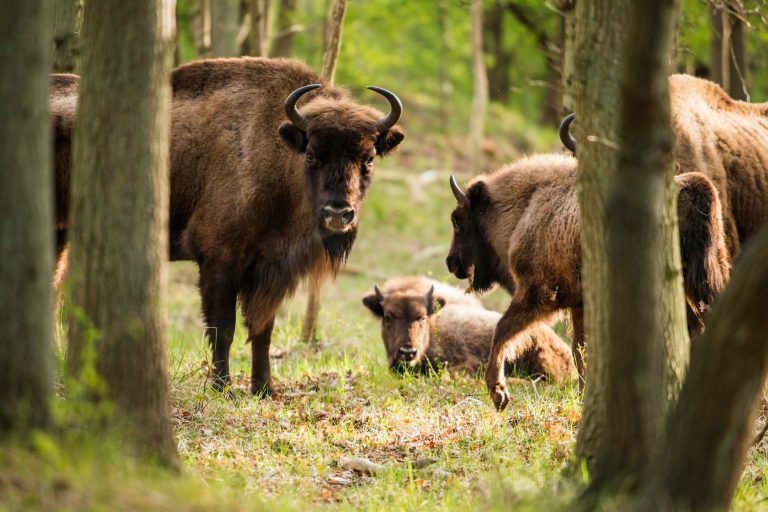Treasure falling from trees. Don’t rake autumn leaves

Fallen leaves are a natural organic fertilizer, leaving them serves the quality of the soil and many organisms – emphasizes a zoologist from Krakow, Dr. Tomasz Figarski. He adds that even minor changes in greenery management can collectively produce a clear, beneficial effect.
“Leaving fallen leaves brings many benefits,” says Dr. Tomasz Figarski, who cooperates with the Institute of Animal Systematics and Evolution of the Polish Academy of Sciences in Krakow. “Falling leaves create litter which, as it accumulates and decomposes, forms the organic horizon of the soil. The resulting humus supplies the soil, and consequently the plants growing in it, with nutrients. The leaves are therefore a natural organic fertilizer. The opposite action, thorough raking of fallen leaves, removes the nutrients stored in the leaves from the ecosystem and returns them to the soil, completing the matter cycle. “Such activities, carried out over many years, reduce the vitality of the ecosystem and the plants found in it.” – he adds.
The expert adds that the layer of fallen leaves effectively retains and stores water and limits evaporation from the soil. This is important for protecting the soil and the organisms living in it from drying out. Fallen leaves also insulate well and eliminate temperature fluctuations, protecting soil organisms and plants from frost.
The layer of fallen leaves limits the compaction of the topsoil layer, which is important for the roots of trees and shrubs located shallowly under the soil surface. Significant soil compaction in this layer sometimes causes the death of trees.
A valuable shelter
Dr. Figarski points out that fallen leaves and the resulting humus provide shelter and food for many organisms – invertebrates, e.g. insects and arachnids, as well as larger animals – rodents and hedgehogs. “Small soil organisms (e.g. nematodes, rotifers, springtails), although often invisible to the naked eye, play a key role in the functioning of the ecosystem and influence other trophic levels. Birds like to feed on the leaves – thrushes, wrens, wood-crested birds, and corvids, for which they constitute an autumn and winter pantry. Parks deprived of leaves are ecosystems impoverished in terms of the richness of the animals inhabiting them. – explains.
Dr. Figarski emphasizes that even small changes in the habits of greenery managers or garden owners can bring good results. It lists a handful of universal tips, suggesting, for example, that instead of entire parks or squares, you should rake up leaves only from sidewalks, alleys, bicycle paths, etc. and their immediate surroundings (at a distance of 2-3 m on each side).
Other tips include:
-
Thorough raking of chestnut tree leaves to prevent the chestnut leaf moth pupae from overwintering there
-
Leaving leaves under trees and bushes, and in possibly secluded, less frequented places, piling up piles of leaves with a size of min. 10 square meters, which should be covered with branches to prevent them from being blown away or dug up
-
On maintained lawns – raking some of the leaves so that the remaining leaves form a loose, discontinuous layer
-
Installation of educational boards on the role of fallen leaves in frequented green areas, which would also have a great educational value for private property owners. Currently, many leaves end up in plastic bags as organic waste, and they should rather remain in the ecosystem
-
Refrain from using blowers to clean leaves, which contribute to increasing the smog problem, among others. by re-lifting fallen dust. A complete ban on the use of these devices was introduced, for example, in the Warsaw agglomeration. Wrocław also abandoned their use
-
If some of the leaves are raked, it is worth composting them
Dr. Figarski reminds that more and more cities are deciding to limit leaf raking, including: Legionowo, Wrocław, Białystok, Szczecin, Kielce and Rzeszów. In turn, in Wrocław, for the second year in a row, the social campaign “leaf is NOT garbage” is organized. It is organized by the social group ZIELEŃ WROCŁAWSKA, which is joined by other organizations and social groups – the Capital Society for the Protection of Birds, the Resin, Fauna and Flora Popowic Association and the Ostoja Nature Group.






